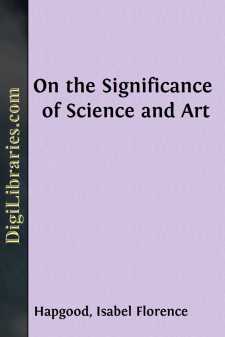Categories
- Antiques & Collectibles 13
- Architecture 36
- Art 48
- Bibles 22
- Biography & Autobiography 813
- Body, Mind & Spirit 141
- Business & Economics 28
- Children's Books 12
- Children's Fiction 9
- Computers 4
- Cooking 94
- Crafts & Hobbies 4
- Drama 346
- Education 46
- Family & Relationships 57
- Fiction 11826
- Games 19
- Gardening 17
- Health & Fitness 34
- History 1377
- House & Home 1
- Humor 147
- Juvenile Fiction 1873
- Juvenile Nonfiction 202
- Language Arts & Disciplines 88
- Law 16
- Literary Collections 686
- Literary Criticism 179
- Mathematics 13
- Medical 41
- Music 40
- Nature 179
- Non-Classifiable 1768
- Performing Arts 7
- Periodicals 1453
- Philosophy 64
- Photography 2
- Poetry 896
- Political Science 203
- Psychology 42
- Reference 154
- Religion 513
- Science 126
- Self-Help 83
- Social Science 81
- Sports & Recreation 34
- Study Aids 3
- Technology & Engineering 59
- Transportation 23
- Travel 463
- True Crime 29
Les Miserables
Categories:
Description:
Excerpt
CHAPTER I—M. MYRIEL
In 1815, M. Charles-Francois-Bienvenu Myriel was Bishop of D—— He was an old man of about seventy-five years of age; he had occupied the see of D—— since 1806.
Although this detail has no connection whatever with the real substance of what we are about to relate, it will not be superfluous, if merely for the sake of exactness in all points, to mention here the various rumors and remarks which had been in circulation about him from the very moment when he arrived in the diocese. True or false, that which is said of men often occupies as important a place in their lives, and above all in their destinies, as that which they do. M. Myriel was the son of a councillor of the Parliament of Aix; hence he belonged to the nobility of the bar. It was said that his father, destining him to be the heir of his own post, had married him at a very early age, eighteen or twenty, in accordance with a custom which is rather widely prevalent in parliamentary families. In spite of this marriage, however, it was said that Charles Myriel created a great deal of talk. He was well formed, though rather short in stature, elegant, graceful, intelligent; the whole of the first portion of his life had been devoted to the world and to gallantry.
The Revolution came; events succeeded each other with precipitation; the parliamentary families, decimated, pursued, hunted down, were dispersed. M. Charles Myriel emigrated to Italy at the very beginning of the Revolution. There his wife died of a malady of the chest, from which she had long suffered. He had no children. What took place next in the fate of M. Myriel? The ruin of the French society of the olden days, the fall of his own family, the tragic spectacles of '93, which were, perhaps, even more alarming to the emigrants who viewed them from a distance, with the magnifying powers of terror,—did these cause the ideas of renunciation and solitude to germinate in him? Was he, in the midst of these distractions, these affections which absorbed his life, suddenly smitten with one of those mysterious and terrible blows which sometimes overwhelm, by striking to his heart, a man whom public catastrophes would not shake, by striking at his existence and his fortune? No one could have told: all that was known was, that when he returned from Italy he was a priest.
In 1804, M. Myriel was the Curé of B—— [Brignolles]. He was already advanced in years, and lived in a very retired manner.
About the epoch of the coronation, some petty affair connected with his curacy—just what, is not precisely known—took him to Paris. Among other powerful persons to whom he went to solicit aid for his parishioners was M. le Cardinal Fesch. One day, when the Emperor had come to visit his uncle, the worthy Curé, who was waiting in the anteroom, found himself present when His Majesty passed. Napoleon, on finding himself observed with a certain curiosity by this old man, turned round and said abruptly:—
"Who is this good man who is staring at me?"
"Sire," said M....










